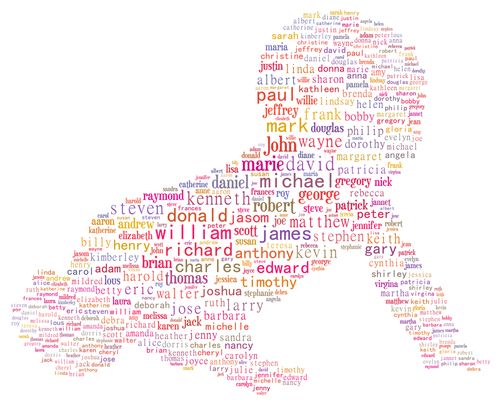 Baptisms, christenings, and other baby-naming ceremonies happen all over the world. However, not all baby naming traditions are the same. For example, in the US, you can name your baby whatever you want, including North, Apple, Dweezil, and Moon Unit. In other parts of the world, baby names are more traditional.
Baptisms, christenings, and other baby-naming ceremonies happen all over the world. However, not all baby naming traditions are the same. For example, in the US, you can name your baby whatever you want, including North, Apple, Dweezil, and Moon Unit. In other parts of the world, baby names are more traditional.
Iceland
Iceland has a registry of approved baby names that parents can choose from. If the name they want isn’t on the list, they can petition the Iceland Naming Committee to approve their choice of name. The committee is dedicated to making sure the name not only fits in with Icelandic naming traditions but also “must not cause the bearer embarrassment.”
Icelanders don’t have the same last names as their parents. The tradition is to give sons a last name that has their fathers’ first name followed by -son. Daughters have a last name that’s their fathers’ first name, followed by -dóttir. For example, Lars’ children would have the last names Larson and Larsdóttir.
Ghana
In Ghana, children are named in a ceremony a few days after they’re born. This ceremony is the first time friends and other loved ones see the newborn. Either the father or an older member of the family chooses the baby’s name. Children’s first names are based on the day they were born and their gender.
Babies’ middle names are often chosen to honor a relative, living or dead. Ghanaians believe that children will take on all the best qualities of their namesakes, so it’s important to choose wisely when picking middle names.
Spain
In Spanish cultures, including Mexico, Puerto Rico, Honduras, Peru, Guatemala, Cuba, Ecuador, and Colombia, babies have one or two given names. These names traditionally come from the Bible or from the names of saints or martyrs. Babies who are named after saints may celebrate that saint’s name day as a second birthday.
Spanish last names are more complicated, since babies are given surnames from both their mother and father — women in Spanish cultures don’t usually change their last name after marriage. Babies’ first last names are their fathers’ first last names, and their second last names are their mothers’ first last names.
China
Babies in China are usually given names that are three characters and three syllables long. Since the Chinese alphabet has over 50,000 characters, even with a population of 1.4 billion people, it’s exceedingly rare to find two people with the same first name. Parents often choose a combination of characters that has a special meaning to them.
In Chinese, last names come first, and it’s common to refer to people by their full names to show respect. Nicknames may be used among close family and friends. Some Chinese people who travel abroad may choose a Western first name and use their given name as a middle name.
Greece
Most babies in Greece are named after their grandparents. Sometimes, grandparents’ names from both sides of the family can be combined to make a new first name. For example, Cora and Thea can be combined to make Corathea. Babies are also sometimes given the names of saints in the Greek Orthodox church. They, too, celebrate the saints’ name days as birthdays.
Ireland
Irish babies are also often named for relatives, though they extend their name pool to include aunts, uncles, and cousins, in addition to grandparents. Sometimes, if a baby is born on a saint’s day, the child might be given that saint’s name. For example, a girl born on March 17 might be named Patricia in honor of Saint Patrick.
While naming traditions vary around the world, there’s one common thread — parents want their babies to have a name that is meaningful and will grow with them through the years. A rose by any other name may still smell as sweet, but a baby’s name is specially chosen to last a lifetime.